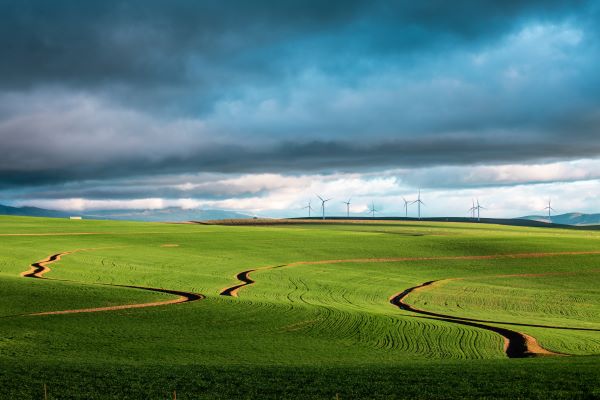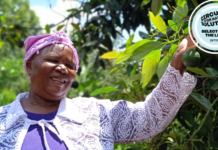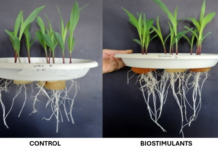Africa is in a water crisis. Cattle and giraffe carcasses litter the roads and once-bountiful crop fields yield nothing but sand. Much of Sub-Saharan Africa’s agriculture relies on rainfall. Faced with a mounting climate disaster, rapid population growth, and lack of water catchment systems, addressing water security and quality is critical to addressing Africa’s farming challenges.
Understanding Water Scarcity
Two types of water scarcity affect Africa: Physical scarcity and economic scarcity.
1. Physical Scarcity
This is when there simply isn’t enough water in an area to supply the population’s needs. If a region is too hot or receives too little rainfall to replenish the dwindling supply of water, the people living there will suffer physical scarcity. No amount of infrastructure changes will make a difference in this situation.
2. Economic Scarcity
In some areas, there is theoretically enough water to go around, but the distribution is poorly managed. A lack of infrastructure or technology to procure the available water leads to economic scarcity. In this situation, finding water is expensive and time-consuming.
What little water there is might be contaminated by sewage leaks, livestock waste, and people dumping sewage directly into the water. There is a great need for more water treatment plants in Africa.
The Effects of Climate Change
Many Africans rely on farming for their livelihood. Their livestock and crops are a critical source of food and income, and losing them means potentially starving. Why is the current water shortage affecting African agriculture so severely?
Recent droughts have brought the continent to its knees. Most harmful fossil fuel emissions come from countries outside of Africa. Although African countries contribute relatively little to climate change, they bear the brunt of its effects.
Climate change has led to drier dry seasons with less rainfall, reduced river flows, dried-up aquifers, lowered water tables, and dwindling reservoir storage. The subsequent falling crop yields lead to increased poverty, less-secure livelihoods, and an increased threat of hunger for the poorest people in sub-Saharan Africa, where most of the world’s water challenges occur.
Reducing emissions is critical for Africa’s survival.
Challenges to Water Security
In addition to climate change, there are other factors contributing to the water crisis in Africa.
1. Rapid Population Growth
Africa has the fastest-growing population in the world. Experts estimate that Africa will be home to some 2.4 billion people by 2050, and the continent’s infrastructure can’t even support the current population.
Without making drastic changes to increase the supply of clean water for drinking, bathing, crop irrigation, and supporting livestock, many people will go hungry and thirsty in the years to come.
2. Lack of Clean, Reliable Water Sources
Many Africans face physical water scarcity, since Sub-Saharan Africa receives seasonal, unevenly distributed rainfall. But a major part of the water crisis involves a lack of access to clean, treated water.
For some people, fetching water means walking several miles to the nearest well. Even after they haul the water home, people usually have no way of purifying it, leading many Africans – especially children – to die of preventable diseases that cause diarrhea and vomiting. The Food and Agriculture Organization of the United Nations brings water tankers to communities in dire need of relief. But it’s not enough.
Additionally, people often resort to pouring wastewater on their ailing crops, causing large numbers of people to eat foods that contain pathogens or chemicals. Wastewater filtration methods are sorely lacking in most of Sub-Saharan Africa.
3. Lack of Irrigation Methods
Most of the agriculture in Sub-Saharan Africa relies on rainfall. But with climate change causing weather patterns to vary unpredictably, crops are more susceptible to severe droughts.
A lack of rain translates to a lack of food and income. Although people could traditionally supplement their diet by going to the market, prices are currently so high that many people can’t afford to buy food. The dependence on rain-fed agriculture is one of many contributors to the poverty cycle in Africa.
The solution is to use irrigation. Most rural African communities don’t irrigate their crops because they lack the financial resources to build irrigation systems.
Hope for Africa
The water security situation in Africa is dire. Governments and humanitarian workers must make efforts to halt climate change, create irrigation systems, and build water treatment facilities in rural parts of the continent. Otherwise, farmers will remain trapped in poverty, forever waiting for rain.

Jane is an agriculture and environmental journalist and the founder and editor-in-chief of Environment.co, where she covers sustainability and eco-friendly living.









